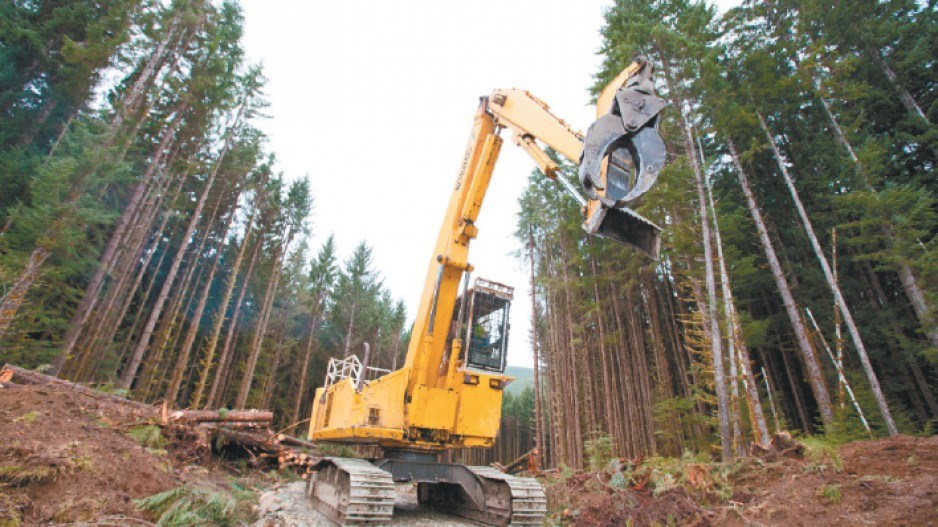A Council of the Haida Nation forestry company is finding success in smaller-scale logging by focusing on quality over quantity.
Taan Forest Products is one of three subsidiaries (see sidebar) owned by the Haida Enterprise Corp. (HaiCo).
"We are working on selling by the ounce and not by the tonne," Roslyn Kunin, an economist and board member of HaiCo, told Business in Vancouver.
It's a switch from the fraught relationship the Haida once had with the forestry industry. Throughout the 1970s and '80s, members of the Haida Nation protested intensive logging on Haida Gwaii, often blockading logging roads.
Under a land-use agreement signed between the Haida and the B.C. government in 2007, the two entities agreed to jointly manage forest lands under the principles of ecosystem-based management, a system that places equal emphasis on environmental, social and economic outcomes.
In July 2012, HaiCo bought tree farm licence 60 from Western Forest Products (TSX:WEF). The licence gives Taan access to 130,000 hectares of timber on Graham, Moresby and Louise islands and provides the company with an annual allowable cut of 460,000 cubic metres.
Its competitors on the island are Husby Forest Products and JS Jones. Together, the three companies harvest around 650,000 cubic metres of wood out of a total annual allowable cut of just under one million cubic metres. Back in the days of the blockades, the annual allowable cut was double that.
Today, Taan employs 12 people directly in management, engineering and administrative jobs and another 120 through logging, road building and silviculture contracts.
Roughly half of the jobs are filled by Haida people, said Taan CEO Kevin Ainsworth, who added that the company is profitable.
"We intend to run successful businesses … but within that mandate, we give very high priority to generating employment, particularly for Haida," Kunin said.
All forestry companies that operate on Haida Gwaii face the high cost of barging wood off the island. Taan is tackling the challenge by differentiating its products, said Ainsworth, who previously worked in his family's Ainsworth Lumber (TSX:ANS) logging business.
It is one of the only B.C. coastal forest companies to be Forest Stewardship Council (FSC) certified. Considered to be the most stringent environmental designation for forestry, the certification gives Taan access to markets that place a high value on FSC, like western Europe.
Currently, Taan exports raw logs to Japan, China and Europe. It also rents time in Lower Mainland sawmills to produce products like red cedar decking. Much of the market for those products is in the southern United States.
All of these activities are part of testing the market to see what will be possible for the future.
"There are two things we're trying to achieve: we're trying to get brand recognition in the marketplace," Ainsworth said, "and second is market intelligence. … Ultimately our goal is to manufacture on the island."
That manufacturing won't be a big sawmill that cuts commodity lumber. Instead it will likely make custom products like the ones Taan already makes in the Lower Mainland. Taan operates a manufacturing facility on Haida Gwaii to peel second-growth western red cedar to be used for power poles.
Ainsworth said wood for instrument-making is another area with a lot of potential. Sitka spruce, which grows on the island, is prized for its ability to resonate sound.
Taan sells Sitka logs that are used in making Martin guitars and Steinway pianos, but the company hopes to make parts of those instruments on Haida Gwaii.
Taan has received financing from the Bank of Montreal's aboriginal business division, as well as from the Coast Opportunities Fund, created as part of the Great Bear Rainforest conservation agreement.




